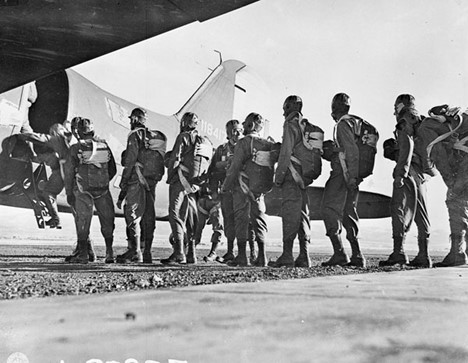More than 3,000 participants attend Minneapolis event
Still fighting the wars

If you should meet a person wearing a World War II, Korean, Vietnam, Iraqi, Kuwait, or other vet baseball cap, think about that – Clara Caufield/ Photo by Sara Marcum
Old men, such as national presidents, dictators, generals, and so forth, start wars. But to get that done, they require the assistance of many young men. And recently, young women have joined the cause.
If those leaders are so convinced about wanting war — usually involving a gain of oil, land, or other resources — they could personally take matters in hand and challenge another leader, mano-mano. Just get the argument over with a duel.
For example, Lincoln and the head of the South could have personally solved the Civil War in about ten minutes, one-on-one.
Genghis Kahn and Crazy Horse, both famous warriors, did things like that, but otherwise, the idea has not readily caught on with other leaders.
Such warrior names will be long recalled in history because of their ethics and leadership. They did not sit in the back and direct things. They were in the front, convinced they were bulletproof. On the other hand, in the next 50 years, who will remember Presidents Jimmy Carter or Richard Nixon for their behind-the-scenes roles in the war?

Memorial Day will soon arrive on May 29. It hearkens to memories of other warriors and especially my father. He served in World War II, as a member of the First Special Service Force; a unit awarded the Congressional Gold Medal of Honor for their service and sacrifice.
The hardy military force was dubbed the Devils Brigade and has since been memorialized in a book and movie. The brigade suffered an 80 percent causality rate. Fortunately, Dad survived, but he had to live with the terrible memories of that for the rest of his life. The battles went on, on and on.
PTSD was not then recognized. He called it “the shakes.”
Those shakes shook up our little family world upon occasion, not on purpose. A few times, he just lost control.
“When you meet a veteran,” he advised. “Shake his hand and say, ‘Thank you.’”We should all do more of that.
There are only a few living World War II vets and Korean Conflict vets. The next oldest generation is the Vietnam vets, most of whom are in their 70s.
If you should meet a person wearing a World War II, Korean, Vietnam, Iraqi, Kuwait, or other vet baseball cap, think about that.
“Fortunately, Dad survived, but he had to live with the terrible memories of that for the rest of his life. The battles went on, on and on.”
Clara Caufield, Northern Cheyenne Columnist
As kids, maybe 17, 18, 19, or even 20, the USA required those warriors to be big, brave, bold — and do many dreadful things — trained killers. They were required to see things nobody should see and do things nobody should be forced to do.
If you think you got trouble, consider the plight of a veteran who somehow survived. Many of his kin did not. That can bring on the guilty survivor syndrome. They often blame themselves: “I should have done more.”
“Baby Killers” is what people often call the Vietnam vets. When they returned home, many were called down, egged, and even spit upon. Jane Fonda had a loud opinion about that. Yet did she ever have to creep around in the jungle, worried about land mines or getting killed?
On the other hand, the number of deaths from all the wars in which America has been involved numbers in the hundreds of thousands. About 58,000 service members died in the Vietnam War alone.
Vietnam vets are all now gray-headed. Back in the 1970s, one Cheyenne veteran discharged from the war landed at Billings, Mont. Airport. He was intent upon getting back to his home in Sheridan, Wyo. Clad in fatigues and dragging a duffle bag, he walked 147 miles to get home. No one would give him a ride.
Another was Richard, my high school sweetheart, also Indian, who succumbed to drugs and distress because of his horrific war experience. It happened to others, too. We must not pass hard judgment upon them. They did not ask for that duty, but neither did they decline. Many volunteered.
One vet survived Vietnam but, for the past 42 years, has not had one good night of sleep because of the memories. He drinks and tries to deny his own reality. “There is always another vet worse off than me,” he often says.
So many others are in the same predicament. They were lucky to survive the war but not so lucky with the memories. Most survivors don’t acknowledge their own plight. Thus, if you meet a person, man or woman, wearing a baseball cap with a veteran logo, take a moment. Thank them for their service. They are the brave ones who did things that you and I do not even want to contemplate. They are still warriors dealing with demons beyond our comprehension.
Clara Caufield
Correspondent
Location: Busby, Montana
Spoken Languages: English, German, Northern Cheyenne
Topic Expertise: Plains Indians; Cowboys; Horses; Political Commentary
See the journalist page© Buffalo's Fire. All rights reserved.
This article is not included in our Story Share & Care selection.The content may only be reproduced with permission from the Indigenous Media Freedom Alliance. Please see our content sharing guidelines.
This article was produced for ProPublica’s Local Reporting Network in partnership with Honolulu Civil Beat
ProPublica
Inspired by her grandparents, Tonah Fishinghawk-Chavez proves that caring for the community is an action, not just a word
Police and family looking for Angel Mendez and Zayne LaFountain







